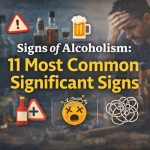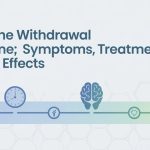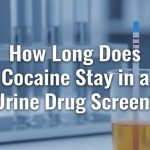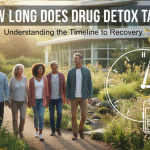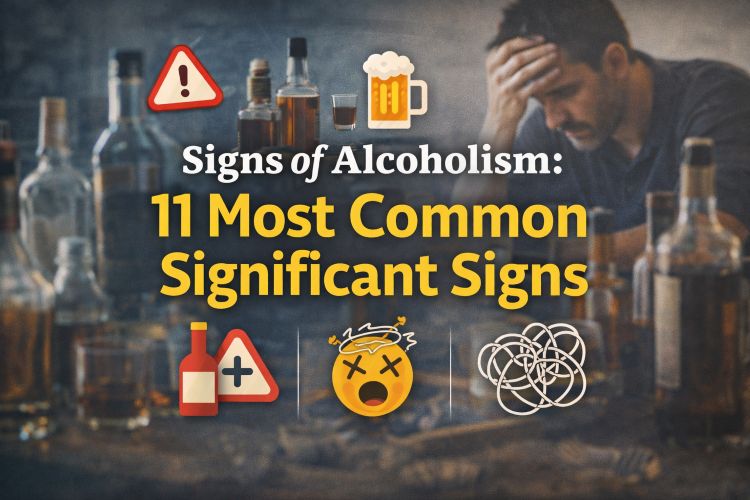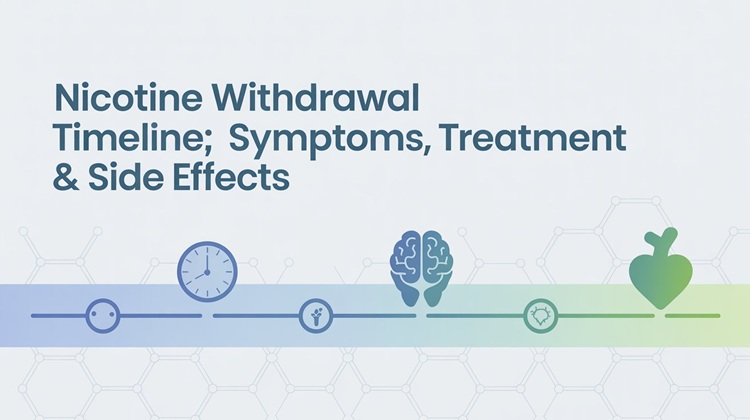
One of the most difficult challenges a person can face is overcoming addiction. If you or a loved one is struggling with a substance use disorder, you may be looking into the different options available for addiction treatment. Every person is unique, so the circumstances surrounding their substance abuse should be considered when selecting a treatment program.
Since the needs of one individual in addiction recovery are distinct from the needs of another individual, you need to be aware of different treatment approaches before enrolling in an addiction recovery program. The most common types of treatment programs are supervised detoxification, long-term and short-term residential treatment, partial hospitalization, intensive outpatient programs, and other outpatient services like individual counseling or group therapy sessions. Depending on the severity of your substance abuse and related health conditions, the most effective type of treatment program might be an outpatient program for alcohol and drug treatment.
Outpatient Treatment Program Basics
Outpatient rehab is a non-residential addiction recovery program. Because clients can live at home during treatment, this type of program is perfect for someone who is motivated to get sober but cannot take the time off from work, school, or other responsibilities to attend inpatient treatment.
Although outpatient programs give clients more freedom during treatment, these programs can be just as intensive as inpatient treatment as they often require daily sessions with an addiction specialist. The number of hours of attendance required each day and the number of days per week will vary depending on the needs of the individual during each stage of recovery.
The first three months of treatment is the period in which people in recovery are most likely to relapse. Thus, most outpatient rehab programs last between 30 to 90 days. However, the exact duration of treatment is determined by a client’s unique situation, challenges, and needs.
Elements of Effective Outpatient Treatment
To offer an individual the best possible support for overcoming their addiction to drugs or alcohol, an outpatient rehab program will offer therapy options utilizing evidence-based treatment modalities. Standard outpatient rehab programs include individual counseling sessions, group counseling and therapy, psychoeducational programming, pharmacotherapy, and medication management, routine monitoring of illicit drug and alcohol consumption, case management, 24-hour crisis coverage, community-based support groups, medical treatment, psychiatric examinations, psychotherapy for clients with co-occurring mental health disorders and vocational training and employment services.
Depending on the recovery goals of the client, they may want to explore adjunctive therapies, including acupuncture, art and music therapy, biofeedback therapy for stress reduction, meditation, and other holistic approaches and nutritional guidance. For some, therapeutic recreational events can be a valuable part of treatment because it help individuals find substance-free activities to replace former substance use.
Both standard treatments and adjunctive therapies may be scheduled on a weekly or even daily basis depending on the needs of the individual.
100% Confidential Support is Available 24/7
No matter what you’re going through, you’re not alone. Our dedicated team is here to provide a safe, judgment-free space where you can talk openly and honestly. Whether you need emotional support, resources, or just someone to listen.
We’re here for you—completely confidential and always respectful of your privacy. Call us today!
Dual Diagnosis and Outpatient Treatment
According to SAMHSA’s 2014 National Survey on Drug Use and Health, there were approximately 7.9 million adults who had co-occurring disorders in 2014. Thus, an important outpatient service to consider is whether a facility offers psychotherapy options for co-occurring mental health disorders. It is estimated that roughly half of people who struggle with addiction are also dealing with a co-occurring mental health disorder. If an individual who is managing both an issue with substance abuse and a co-occurring disorder wants the best possible chance at overcoming addiction, they need a program that includes dual diagnosis support. This type of program will treat both disorders to prevent future relapse in an attempt to self-medicate uncomfortable psychiatric symptoms.
Contact Palm Coast Treatment Solutions
Battling with Drug and Alcohol Addition? Remember, you are not alone and we are here to help you!
The Ideal Candidate for an Outpatient Treatment Program
When you envision drug rehab, you probably imagine an inpatient program like you see on television or in the movies where you spend an extended period of time away from your daily obligations to treat your addiction in a setting similar to a hospital. While some people need to attend an inpatient program, it may not be a viable or effective model for your personal recovery journey. For some individuals, an outpatient program is an ideal option, offering the flexibility they need to achieve their recovery goals without foregoing their work and personal responsibilities.
What is most convenient for you shouldn’t be the only factor you consider when deciding what type of treatment program to attend. Instead, the most important factors to consider are the severity of your substance abuse and whether you have other related medical issues or psychiatric disorders.
As a spectrum disorder, addiction to alcohol or drugs can be classified as mild, moderate, or severe. This means that people have different needs as they work toward sobriety depending on the classification of their symptoms. If a person only has mild or moderate substance abuse symptoms and is seriously committed to the process of recovery, an outpatient program might work best. The very nature of an outpatient drug rehab program involves being allowed to leave the treatment facility on a regular basis, and for this reason, outpatient treatment requires individuals to demonstrate a commitment to managing their own recovery without around-the-clock care.
Those who are dealing with severe substance abuse symptoms may not be suitable candidates for outpatient treatment programs. Because of the high risk of returning to substance abuse, a program that takes place on an inpatient basis may be the best option available. When a person has completed a more intense program, or they have been determined to be stable by the professional conducting supervision during the individual’s detoxification process, an outpatient program may present the best option.
Overcome Addiction with Palm Coast Treatment Solutions.
Book an appointment.
Types of Outpatient Rehab
Depending on your individual circumstances and treatment needs, one type of outpatient drug rehab program may better serve your needs than another. The three most common types of outpatient rehab are intensive outpatient treatment programs, day treatment or partial hospitalization, and continuing care groups.
Intensive:
Intensive outpatient programs may be offered during the day or evening to accommodate busy schedules. Those who take part in an intensive outpatient treatment program participate in more frequent meetings at the outset of the program. As time goes by and the person reaches their recovery goals, they will need to attend fewer meetings per week.
Day Treatment or Partial Hospitalization:
A more comprehensive form of outpatient treatment is known as day treatment or partial hospitalization. When a person participates in a day treatment program, they typically spend between five to seven days per week attending scheduled treatment for addiction recovery, but they can leave the premises of the facility during the evenings and any days off. In some instances, a person will begin in the day treatment program and progress to an intensive outpatient program as their needs for addiction recovery treatment evolve.
Continuing Care:
Continuing care groups are also known as aftercare groups. These group counseling sessions typically meet once per week and are facilitated by a licensed professional. Clients can only take part in these groups after successfully completing an inpatient or outpatient treatment program.
Benefits of Outpatient Treatment
For those who are candidates for outpatient substance abuse treatment, there are several benefits to this type of program, including the freedom afforded by a program that does not require individuals to reside at the rehab facility during treatment. This aspect of outpatient care is invaluable to individuals who have personal or professional obligations that must be maintained during the addiction recovery process.
One benefit of an outpatient program is that you don’t have to forgo your commitments during treatment. This allows you to continue to financially support your family and take care of your children or spouse without hiring a full-time caregiver. Additionally, by not taking days off from work, it is less likely that your boss or co-workers will discover that you have a problem.
Another benefit is that the cost of attending an outpatient rehab program is significantly cheaper than an inpatient rehab program. If you cannot afford inpatient treatment, then this may be the best option for you.
Overcome Addiction with Palm Coast Treatment Solutions.
Book an appointment.
What Outpatient Treatment Won’t Accomplish
An outpatient addiction treatment program cannot offer supervised detoxification services. When a person stops using a substance to which their body has become accustomed, the sudden cessation of use may cause symptoms of withdrawal. During the process of supervised detoxification, these symptoms can present several challenges and, in some circumstances, may prove to be very dangerous or even life-threatening.
An inpatient facility that offers a supervised detox program can provide a person who is going through this uncomfortable yet essential stage of recovery with the confidence that accompanies 24/7 supervision by a team of experienced professionals. In some instances, the best course of action is to enroll in a short-term detox program at a hospital before taking part in an outpatient program. The treatment professionals at the outpatient program will advise you on whether supervised detox is necessary, considering your circumstances. Because addiction uniquely affects each individual, it is best to consult with a medical professional to determine what path to recovery will prove most effective for your situation.
Goals of Outpatient Rehab
When an individual participates in an outpatient treatment program, we aim to equip them with the tools they’ll need to sustain their recovery for as long as possible. By providing each person with the techniques, information, and education they need to face the challenges that lay ahead, we want to do everything we can to make sure our clients are in the best possible position to maintain their recovery after completing the outpatient program. Recovery from addiction is an ongoing journey, and our goal is to offer you the guidance necessary to succeed.
Overcome Addiction with Palm Coast Treatment Solutions.
Book an appointment.
What Participation in an Outpatient Program Looks Like
A person who enrolls in an outpatient addiction recovery program will be provided with a treatment schedule. The precise nature of this schedule for treatment will depend on the needs of the individual seeking recovery support. For some people, it may be necessary to attend all-day sessions several times per week. However, other individuals may only require a couple of hours of on-site treatment per week. The frequency and services included in each personalized plan for outpatient treatment will vary, but the common element will be the requirement that the individual can commit to attendance for the treatment schedule they agree upon with their counselor.
The specific treatment strategies that will be included in your customized schedule for outpatient addiction recovery will be contingent on your personal needs. Some of the strategies for treatment that may be utilized include participation in 12-step style programs, education about addiction, therapy on an individual and group basis, treatment for co-occurring mental health disorders, advocacy for issues of a legal nature, and continuing aftercare support, including help avoiding the temptation of returning to substance abuse.
When to Consider an Outpatient Rehab Program
Addiction recovery is a deeply personal process that will require different things from each person. If you think that an outpatient treatment program might be your best option for recovery from substance abuse, you should consider the options that are available to you. Living with the burden of addiction is not a viable option in the long run. When you are ready to build toward a more sustainable way of life, an outpatient drug rehab program might provide you with a chance to maintain your obligations while working to overcome addiction.






